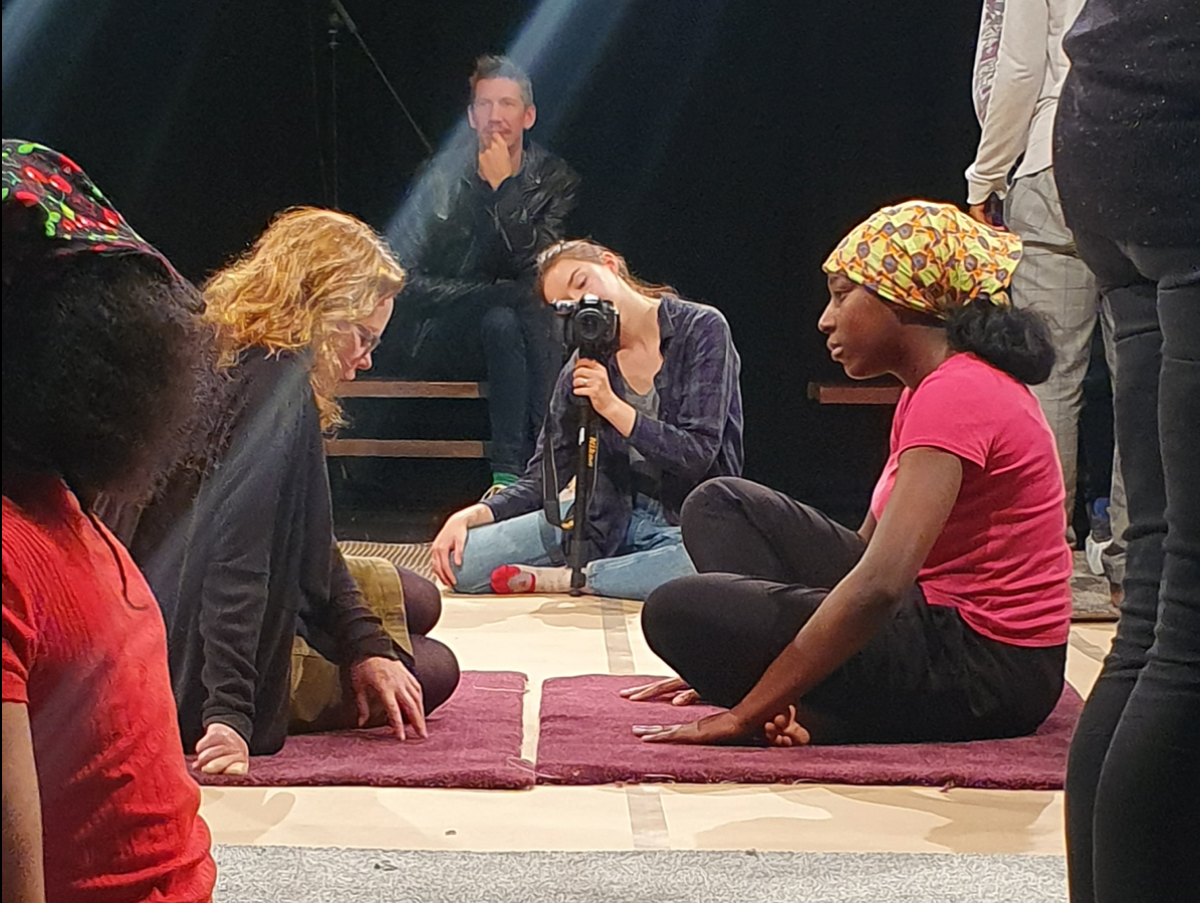Review: Baby Fever (SICK! Festival)

Baby Fever: an intricately layered exploration of youth, fears, aspirations and milestones. Set against the turbulent backdrop of today’s political landscape, this sold-out play sought to answer the question, “What is the value of life?” (the theme of this year’s SICK! Festival).
Over the course of an hour and a half, we were guided through a series of compellingly angry monologues, a movement piece reflecting the innate trust we have in one another, and, finally, invited to join the players on their carpets, where each had a story to tell or a poem to read.
Walking into the studio, we felt an immediate sense of ease. The buzz of chatter and the soothing sounds of a neo-soul playlist created a comfortable environment.
Four benches boxed the space, leaving a square in the middle – in which we were invited by the actors to stand. The lights went down and assistant artist Miray Sidhom introduced the first chapter of the play.
The ‘players’ stood on the benches and began their speeches. The feeling of ease was undercut by a heightened tension as the players poignantly poured out their fears surrounding our generation. Impassioned monologues on climate change, Brexit, the NHS and capitalism ricocheted around the space, creating a 21st-century hellscape.
Venturing into chapter two, we were invited to sit down and switch places with the players, who were now in the centre, partaking in a mesmerising trust exercise. They wandered about the space with their eyes closed, gently bumping into each other, trying to find their way. A few times, there was a single figure striving for their own path, revelling in their own choreography, but despite many attempts to ‘wake up’, it took until the end of the act for the players to open their eyes and look around at the audience that surrounded them.
Finally, we reached chapter three, which was our favourite act of the evening. Small carpets were laid out, and the audience was told that the actors would be bringing us onstage. The feeling of apprehension in the room was quickly punctured by Miray jokingly saying, “Don’t worry; we will look after you.”
One of us was instantly grabbed by a smiling young woman who sat down cross-legged opposite me and asked: “When was the last time you were truly happy?”, “What is your favourite thing about yourself?”, and lastly, “What is the worst thing you have ever done?”.
Some of the audience looked on, some listened to the players’, words and others gave out advice.
The room grew into a layering of earnest interactions, rap, poetry, song and confessions. Unfortunately, this section came to a head all too soon, and the players were whisked from the stage.
In the after-show Q&A, the cast told us about how they had narrowed down the theme of “What is the value of life?” to focus on milestones and how impossible they are to reach, especially with the world changing as it is.
Despite the occasional hopelessness at points in the play, the cast were keen to emphasise their positive outlook. “[Our milestones] are sometimes […] things that take you by surprise.” The subtext here: “And that’s a good thing.”
Most of all, these young people want you to find inspiration in this piece and regain trust in people. Because if we don’t have each other, what hope is there?







